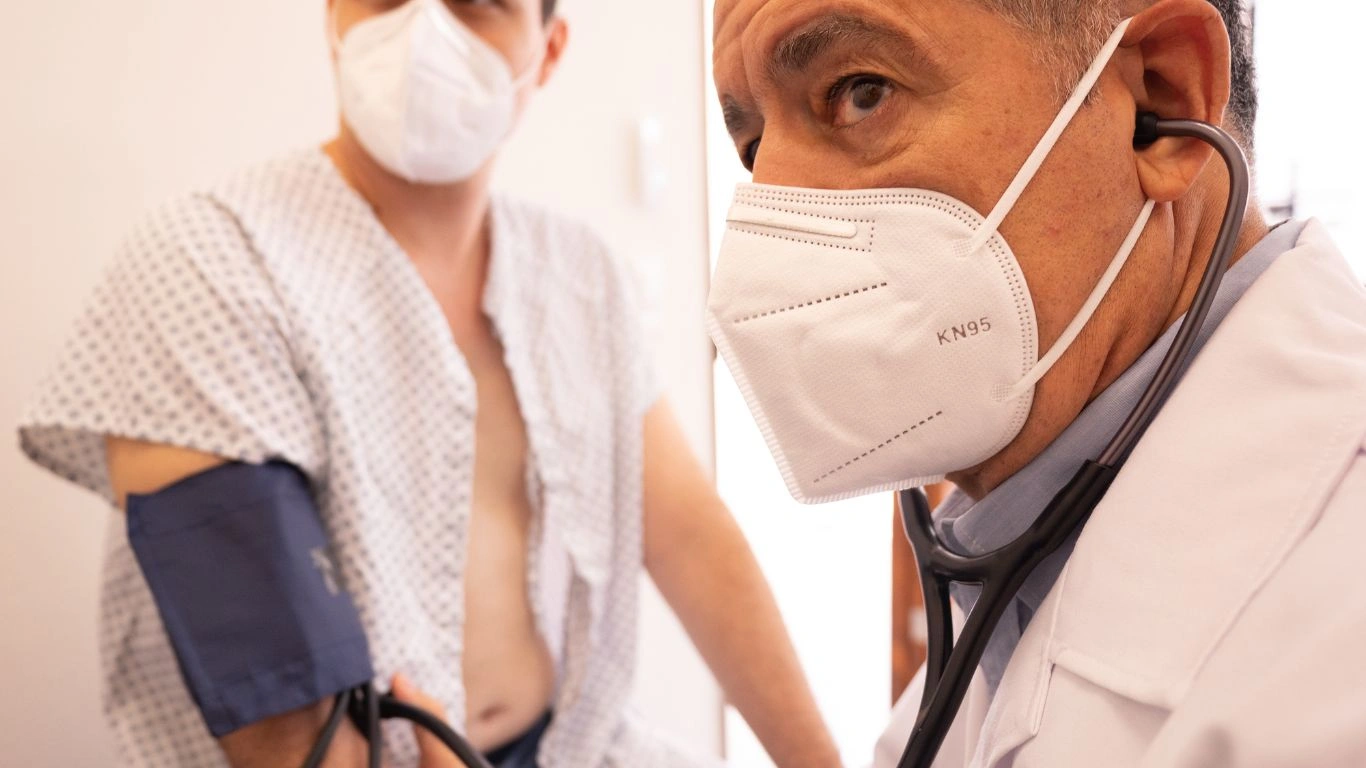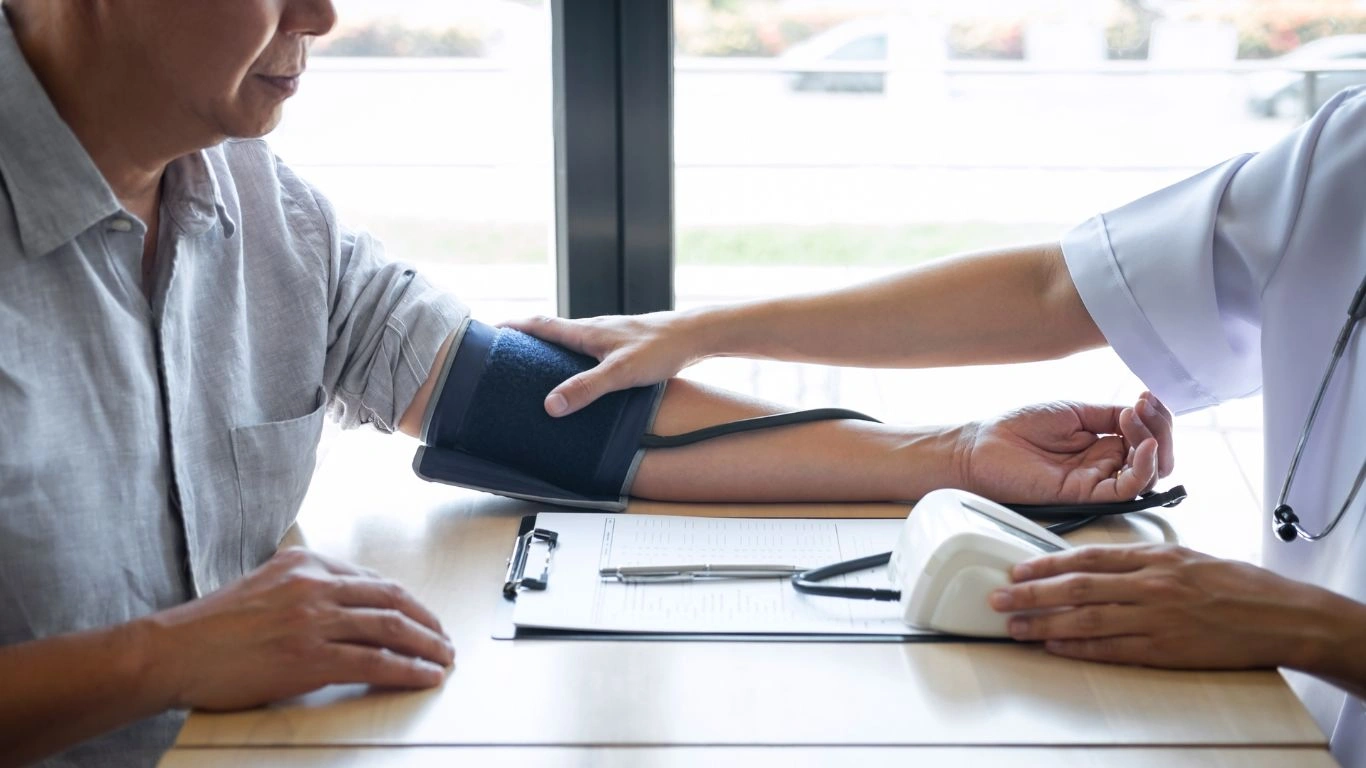Essential Nutrients for Hypertension Patients – Your Guide to a Healthier Heart
Managing hypertension can be tricky, but the right nutrients can make a real difference. Let’s dive into the essential nutrients you should focus on to keep your blood pressure in check!
Living with hypertension (high blood pressure) means keeping an eye on more than just your blood pressure levels. Your diet plays a huge role in managing your health. Certain nutrients can help lower and stabilize your blood pressure, making it easier to keep hypertension under control.
In this article, we’ll explore the essential nutrients every hypertension patient should know about, plus some practical food sources to include in your diet. So, if you’re looking for ways to support your heart health and manage hypertension naturally, keep reading.

### Why Nutrients Matter for Hypertension Patients
Hypertension doesn’t just affect the heart—it can also strain your kidneys, eyes, and other organs over time. Managing it effectively often requires lifestyle changes, and diet is one of the most impactful areas to focus on. Certain nutrients help relax your blood vessels, balance your fluids, and regulate your heart rate, making it easier for your body to maintain a healthy blood pressure.
So, let’s break down the essential nutrients you’ll want to focus on if you’re dealing with hypertension.

### Essential Nutrients for Hypertension Patients
#### 1. Potassium
Potassium is one of the most important minerals for controlling blood pressure. It helps balance the effects of sodium in your body and reduces the tension in your blood vessel walls. Getting enough potassium in your diet can lower the risk of stroke and reduce high blood pressure.
Food sources:
– Bananas
– Sweet potatoes
– Spinach
– Avocados
– Beans
#### 2. Magnesium
Magnesium plays a key role in regulating blood pressure by helping blood vessels relax. Studies have shown that adequate magnesium intake can help lower blood pressure, especially in people with hypertension.
Food sources:
– Leafy greens like spinach
– Nuts (especially almonds and cashews)
– Seeds (pumpkin and chia)
– Whole grains
– Legumes
#### 3. Calcium
Calcium isn’t just for strong bones—it also helps maintain blood pressure levels. Calcium helps blood vessels tighten and relax appropriately, which is crucial for keeping blood pressure within a healthy range.
Food sources:
– Dairy products (milk, yogurt, cheese)
– Fortified plant-based milks (like almond or soy milk)
– Leafy green vegetables
– Tofu
#### 4. Omega-3 Fatty Acids
Omega-3 fatty acids are the good fats that can actually help lower blood pressure by reducing inflammation and improving the function of your blood vessels. Studies suggest that omega-3s can significantly reduce both systolic and diastolic blood pressure.
Food sources:
– Fatty fish (salmon, mackerel, sardines)
– Flaxseeds
– Chia seeds
– Walnuts
#### 5. Vitamin D
There’s growing evidence that vitamin D may have a positive effect on blood pressure. Low levels of vitamin D are linked to an increased risk of hypertension. Maintaining adequate levels of vitamin D can help reduce your chances of developing high blood pressure.
Food sources:
– Fatty fish (salmon, tuna)
– Fortified foods (cereals, milk, orange juice)
– Eggs
– Sunlight (your skin produces vitamin D when exposed to the sun)

#### 6. Coenzyme Q10 (CoQ10)
CoQ10 is a powerful antioxidant that helps blood vessels function properly. It has been shown to help lower blood pressure by improving the health of the blood vessels and reducing oxidative stress.
Food sources:
– Organ meats (liver, kidney)
– Fatty fish
– Spinach
– Broccoli
#### 7. Vitamin C
Vitamin C is more than just an immune booster. It helps strengthen blood vessels and reduce inflammation, both of which are important for managing blood pressure. Some studies even suggest that vitamin C may help lower blood pressure levels in people with hypertension.
Food sources:
– Citrus fruits (oranges, lemons, grapefruits)
– Strawberries
– Bell peppers
– Broccoli
#### 8. Fiber
Fiber is important for your digestive health, but it also plays a role in regulating blood pressure. A fiber-rich diet can help reduce blood pressure by lowering cholesterol and improving heart health overall.
Food sources:
– Whole grains (oats, quinoa, brown rice)
– Beans and lentils
– Vegetables (carrots, broccoli, kale)
– Fruits (apples, pears, berries)
#### 9. Folic Acid (Vitamin B9)
Folic acid, or vitamin B9, is essential for healthy red blood cells and vascular health. Some studies suggest that folic acid can help reduce high blood pressure, especially in people with pre-existing hypertension.
Food sources:
– Leafy greens (spinach, kale)
– Beets
– Lentils
– Asparagus
#### 10. Garlic
Garlic is not only delicious—it’s also a powerful nutrient for hypertension patients. Studies suggest that garlic can help reduce high blood pressure by relaxing blood vessels and improving blood circulation.
Food sources:
– Fresh garlic cloves
– Garlic powder
– Garlic supplements (after consulting with your doctor)

### How to Get These Nutrients in Your Diet
Getting these nutrients in your diet doesn’t have to be complicated. Here are some practical ways to incorporate them into your daily meals:
– Start your day with a smoothie: Blend together spinach, banana, flaxseeds, and a handful of berries to pack in potassium, magnesium, fiber, and vitamin C.
– Add avocado to your lunch: Top your salad or sandwich with avocado for a dose of potassium, magnesium, and healthy fats.
– Snack on nuts and seeds: Grab a handful of almonds or walnuts to boost your intake of magnesium and omega-3s.
– Enjoy fatty fish a few times a week: Grill salmon or add sardines to your salads to get your omega-3s and vitamin D.
### Tips for Managing Hypertension Through Diet
While these nutrients are essential for managing hypertension, it’s also important to follow a balanced diet overall. Here are a few tips to keep in mind:
– Limit sodium: Too much salt can raise blood pressure, so aim to reduce your intake of processed foods and fast food.
– Stay hydrated: Drinking enough water helps maintain healthy blood volume and pressure.
– Control portion sizes: Eating in moderation can help manage weight, which is a key factor in controlling blood pressure.
### Conclusion
Managing hypertension through diet is all about getting the right nutrients to support your heart health. Potassium, magnesium, calcium, and omega-3s are some of the key players in reducing blood pressure, along with a range of other vitamins and minerals. With a little planning, you can enjoy a heart-healthy diet that makes managing hypertension easier.
### Appendices
#### References
1. National Heart, Lung, and Blood Institute (NHLBI). (2023). Hypertension and Blood Pressure. Read Article.
2. Smith, L., & Jones, M. (2022). The Role of Potassium in Hypertension Management. Journal of Hypertension Research, 28(3), 214-220. Read Article.
3. American Heart Association. (2024). How to Control High Blood Pressure Through Diet. Read Article.
#### FAQs
1. How can I lower my blood pressure quickly?
In addition to dietary changes, regular physical activity, stress management, and reducing sodium intake can help lower blood pressure over time.
2. Can I take supplements for hypertension?
Supplements may help, but it’s best to get most of your nutrients from food. Always consult your doctor before starting any supplements.
3. How long will it take to see results from dietary changes?
Changes in blood pressure can take time, but many people start to see improvements within a few weeks of making dietary adjustments.
4. Can exercise help lower blood pressure?
Yes, regular physical activity, like walking, swimming, or cycling, can help lower blood pressure over time.
5. Are there any foods I should avoid for hypertension?
Limit foods high in sodium, processed meats, and sugary drinks, as these can contribute to higher blood pressure.
#### Disclaimer:
The information provided in this article is for educational purposes only and does not substitute for professional medical advice. Always consult with your healthcare provider or nutritionist before making significant dietary changes. Individual needs may vary, and personalized guidance is essential for managing hypertension.





